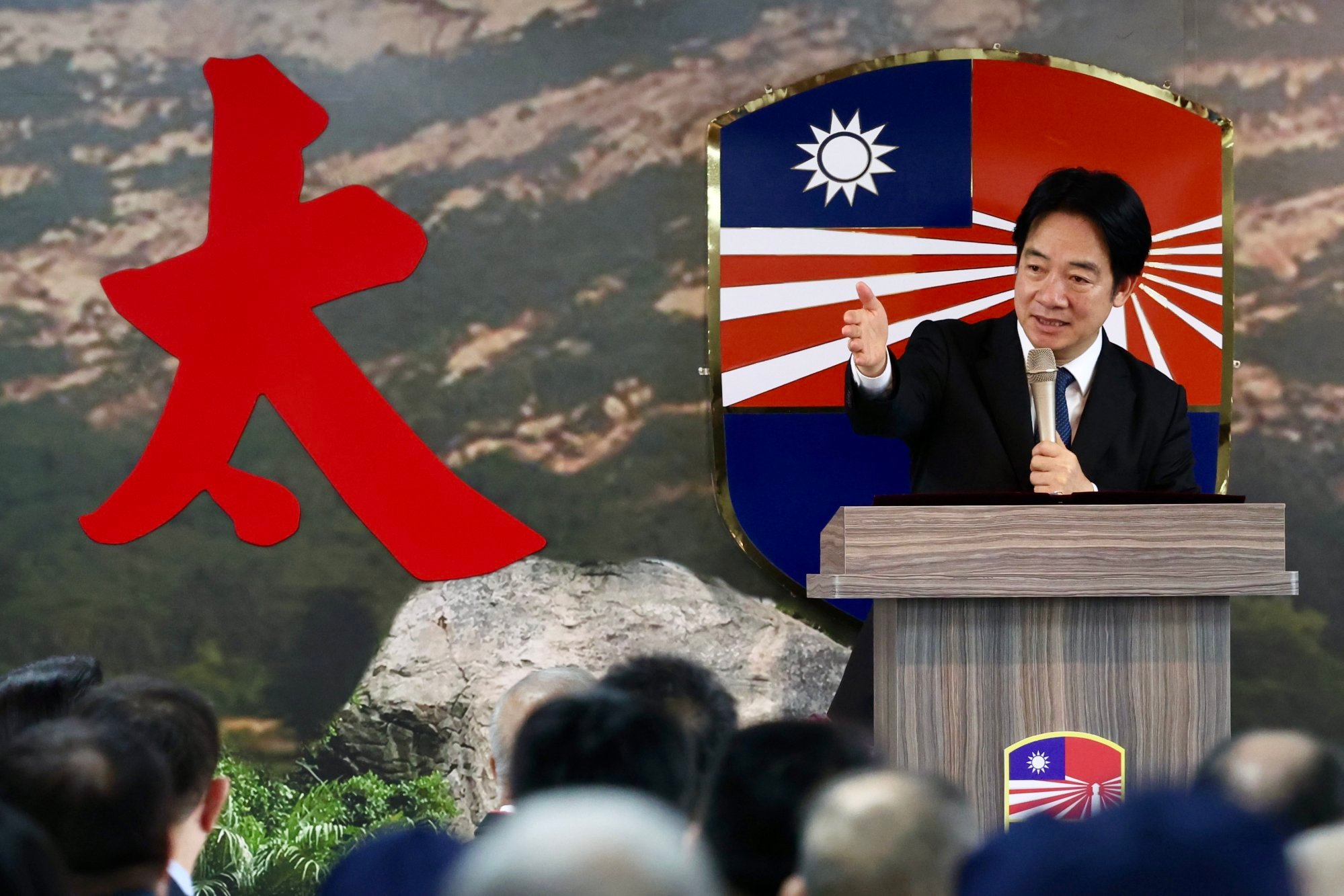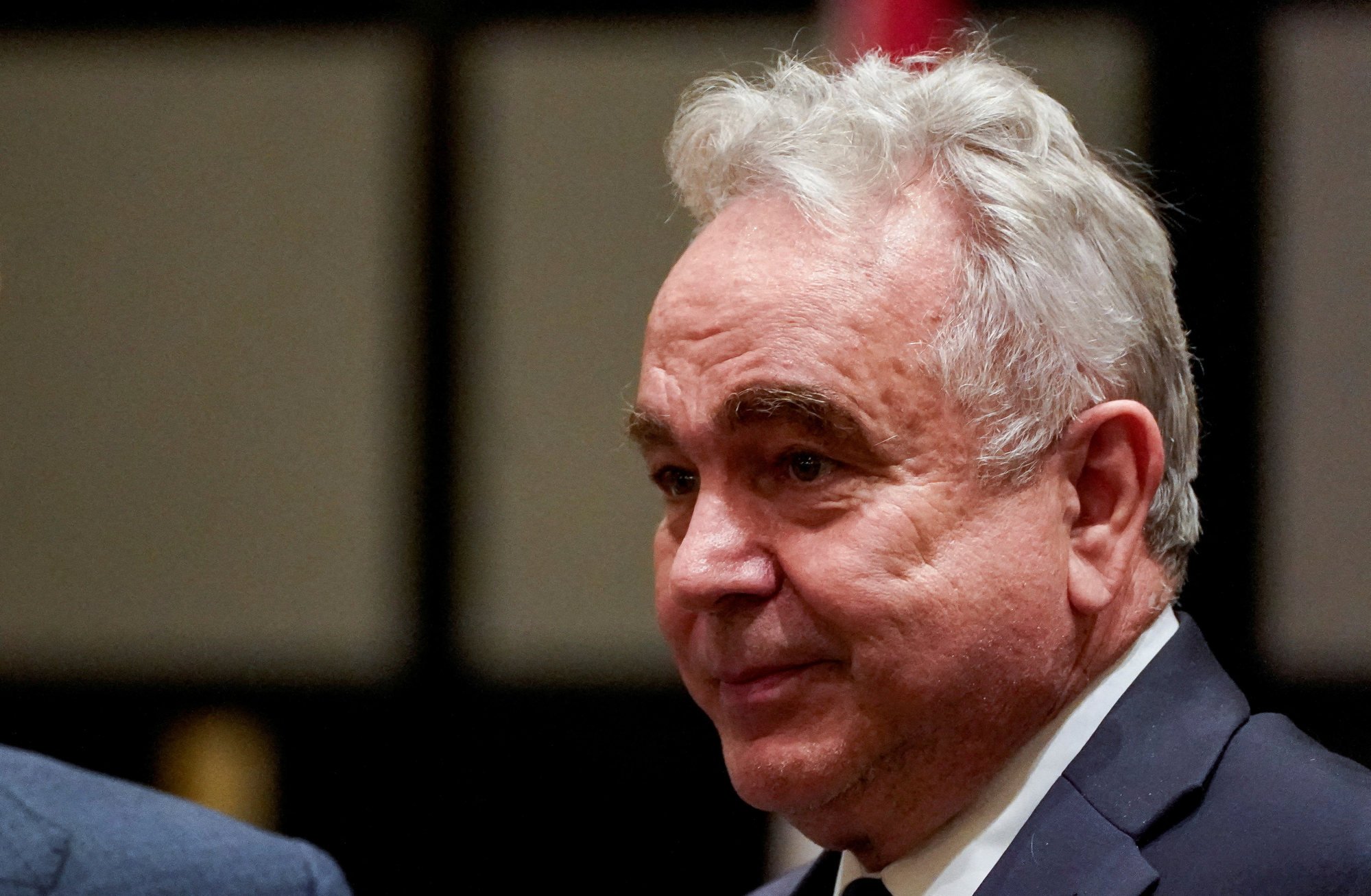Taiwan’s leader has dispatched his top official – second only to himself within the island’s ruling Democratic Progressive Party – on a 13-day tour of the United States.
The trip coincides with speculation about whether William Lai Ching-te, a self-described “pragmatic worker for Taiwan independence”, has managed to earn Washington’s trust during his first 100 days in office.
DPP secretary general Lin Yu-chang said he would meet senior US government officials and think-tank experts on behalf of Lai, who was sworn into office in May.
Do you have questions about the biggest topics and trends from around the world? Get the answers with SCMP Knowledge, our new platform of curated content with explainers, FAQs, analyses and infographics brought to you by our award-winning team.
Speaking on Tuesday at an event held by the Global Taiwan Institute, a Washington-based think tank, Lin described his trip that began on Saturday as meant to give the US “a better understanding of the situation in Taiwan and how we are handling it”.

The former interior minister under Tsai Ing-wen added that he would try to help “the US, our friends” have a “better understanding and explain all the stances of our party”.
Asked about the Lai administration’s trustworthiness, Lin dismissed such concerns as a political tactic used by the opposition during the recent election. He asserted on Tuesday that the relationship between Taiwan and the US was stronger than ever.
“The so-called theory of distrusting Lai was during the election, but it was a political operation,” said Lin. “After President Lai was elected president, I think now there is only trust. Now the relationship between Taiwan and the US and all aspects of communication are at the best moment.”
The opposition Kuomintang party, which has traditionally championed friendlier relations with Beijing, challenged Lin’s contention.
Alexander Huang, the KMT’s director of international affairs, questioned why the Lai administration was “putting too much effort into refuting something they claim does not exist”.
Huang said the DPP had “allocated so many resources to responding” to reports that reflect American concerns about Lai’s handling of cross-strait relations.
During the election, some analysts raised similarities between Lai and ex-Taiwanese president Chen Shui-bian, who served from 2000 to 2008. Chen was labelled a “troublemaker” by the George W. Bush administration over his advocacy of Taiwan’s independence.
Beijing sees Taiwan as part of China to be reunited by force if necessary.
Most countries, including the US, do not recognise Taiwan as an independent state, but Washington is opposed to any attempt to take the self-governed island by force and is committed to supplying it with weapons.
After the stop in Washington, Lin was expected to travel to San Francisco, Los Angeles and Houston. His itinerary has yet to be made public, and he did not identify which officials he planned to meet in the American capital.
On Sunday, while addressing a group of Taiwanese expatriates in New York, Lin said the island needed to “choose to side with like-minded democratic states”.
And on Tuesday in Washington, he described Taiwan as “indispensable” for the security of the Indo-Pacific.
The trip comes amid a fresh diplomatic setback for Taipei in the region.
Last week, the Pacific Islands Forum – a high-profile intergovernmental bloc of 18 Pacific island nations – convened in Tonga and removed any reference to Taiwan from its final communique following Beijing’s strong objection over the initial mention.

Responding to a question from the Post about the PIF’s decision, Lin cited the use of “rocks” and “knives” by Beijing on its disputed border with India and recent clashes in the highly contested South China Sea.
“What’s happening to India and the Philippines today can also happen to other countries,” he said, adding that the pressure used against Taiwan at the forum must prompt “all democracies to work together and to find a solution”.
Taiwan has been a “development partner” with the group, a status initially established by the PIF leaders’ communique in 1992 and reaffirmed in 1999 and 2010.
As Beijing and Washington vie for influence in the South Pacific, both nations sent envoys to the gathering in Tonga in the capacity of “dialogue partners”.
US Deputy Secretary of State Kurt Campbell, who served as the White House National Security Council coordinator for the Indo-Pacific from 2021 to 2024, represented the Biden administration.
On Tuesday, the US State Department declined to comment on the PIF’s decision to omit mentioning Taiwan from its final communique. But it affirmed America’s commitment to the one-China policy.
“So I won’t speak to the decision,” said State Department spokesman Matthew Miller. “But of course our one-China policy has not changed.”
More from South China Morning Post:
- The Taiwan-born ‘tech brain’ leading US military’s innovation race against PLA
- Mainland China resumes Taiwanese pomelo imports, ending 2-year ban
- 100 days into the job, Taiwan’s new leader is cutting mainland ties by reframing history
- No 2 US diplomat ends Pacific tour to bolster regional ties as Taiwan flap rankles Beijing
- Leading Taiwan opposition politician Ko Wen-je’s home raided in corruption probe
For the latest news from the South China Morning Post download our mobile app. Copyright 2024.





